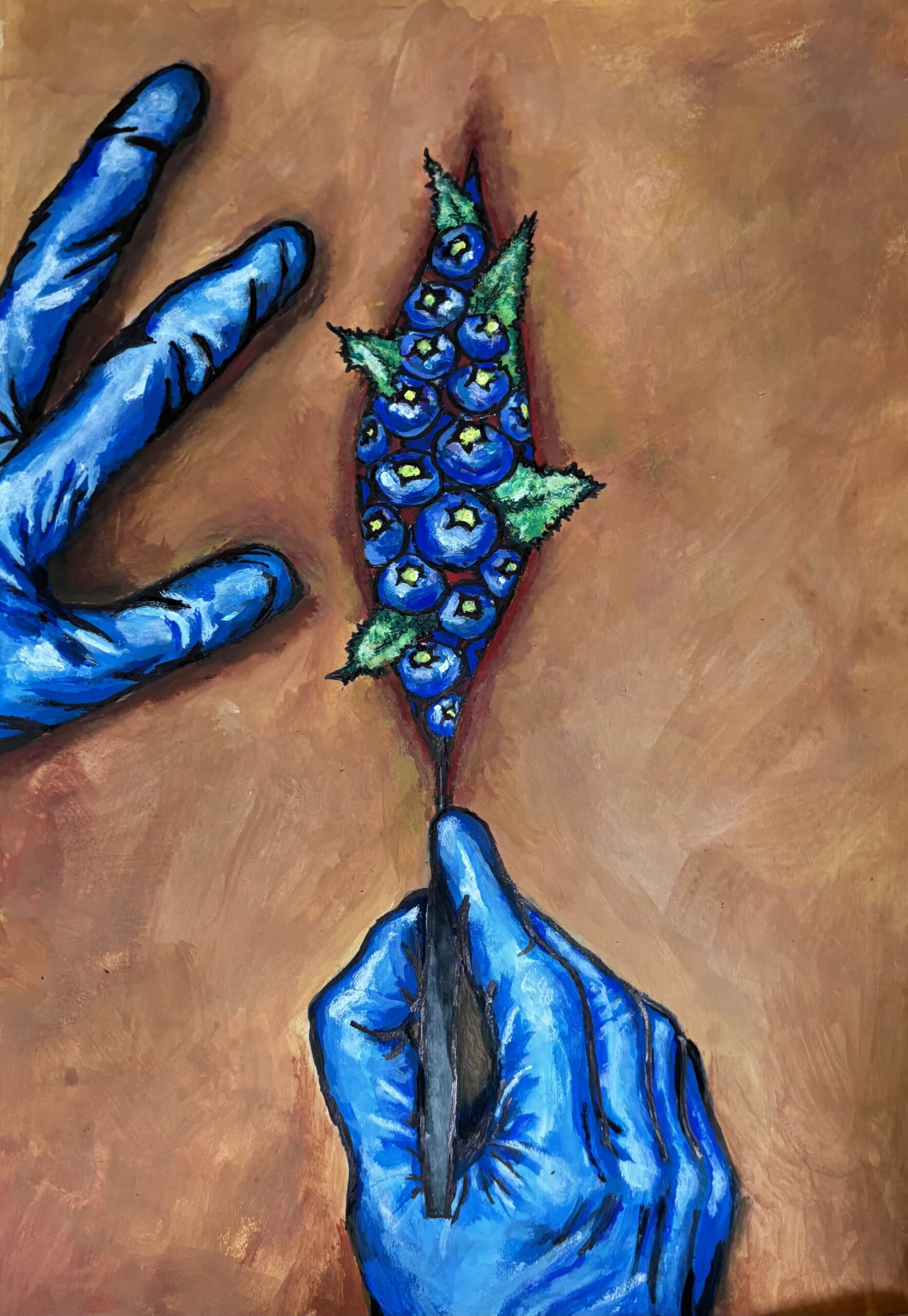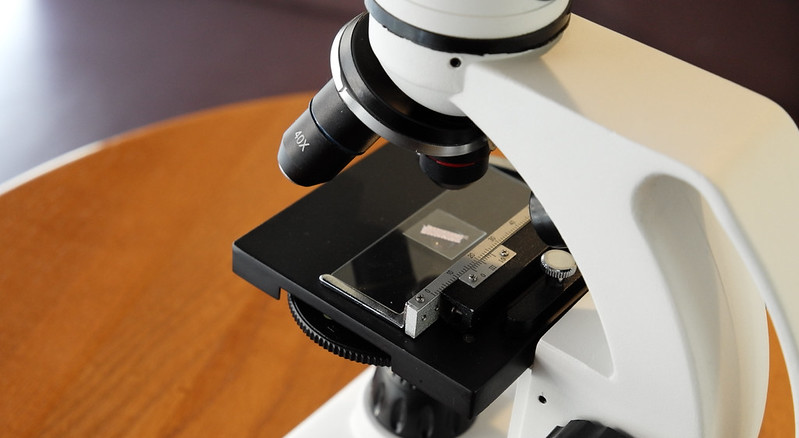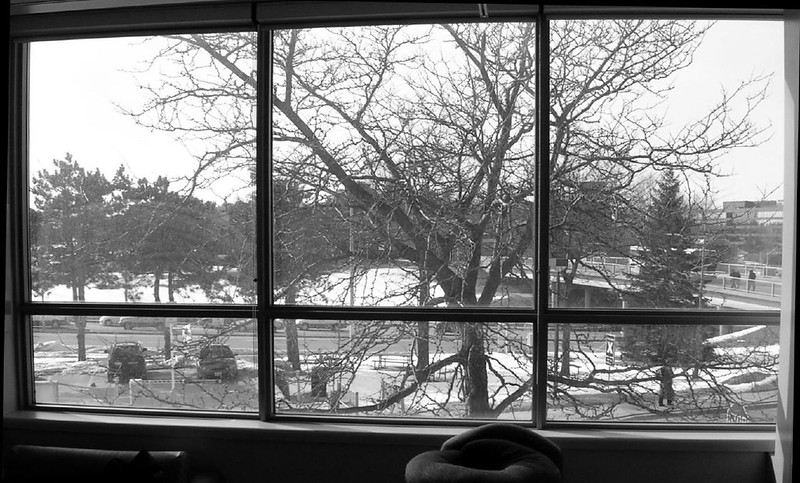Foreign Bodies (Berries)
Foreign Bodies (Berries) Veronica Gibbons (2026) acrylic on paper This painting reminds us that beneath every incision is a unique individual, shaped by experiences that cannot be standardized. Medicine is inherently unpredictable, and while training emphasizes mastery of uniform knowledge, that focus can shift attention toward efficiency, performance, and personal progress. The unexpected blueberries disrupt this mindset, highlighting that while anatomy may be shared, each patient is different. The piece underscores the responsibility to stay …








